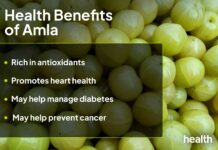Харчування під час вагітності є найважливішим фактором здорового розвитку плоду. Хоча багато дієтичних рекомендацій зосереджені на основних поживних речовинах, не менш важливо знати про потенційно шкідливі харчові добавки. Цей посібник описує конкретні речовини, яких слід уникати, пояснює, чому це важливо, і пропонує дієві поради для вагітних жінок і тих, хто планує вагітність.
Важливість знання добавок
Харчові добавки – це хімічні речовини, які навмисно додають до їжі з різними цілями: консервування, фарбування, ароматизації або покращення текстури. Хоча багато з них були схвалені регуляторними органами, такими як FDA, нові дослідження показують, що деякі з них можуть становити ризик як для матері, так і для плоду, що розвивається. Основне занепокоєння викликає не стільки гостра токсичність, скільки потенційні довгострокові наслідки для розвитку або порушення засвоєння поживних речовин.
Штучні підсолоджувачі: будьте обережні
Більшість низькокалорійних підсолоджувачів, схвалених FDA, вважаються безпечними в помірних кількостях, але їх вплив на розвиток плоду все ще вивчається.
- Аспартам: зазвичай вважається безпечним для більшості, але його слід уникати, якщо у вас є фенілкетонурія (ФКУ), генетичне захворювання, яке перешкоджає розпаду фенілаланіну. Високий рівень фенілаланіну може зашкодити розвитку мозку плода.
- Сахарин: Може проникати через плацентарний бар’єр і накопичуватися в тканинах плода. Обмежте споживання, вибираючи цілісну, насичену поживними речовинами їжу.
- Цикламат: заборонений у США з міркувань безпеки. Уникайте під час поїздок за кордон.
Якщо ви регулярно використовуєте штучні підсолоджувачі, обговоріть їх тип і кількість з лікарем.
Харчові барвники: все більше занепокоєння
Наразі FDA схвалило сім сертифікованих харчових барвників, але тенденція полягає в поступовому вилученні синтетичних барвників на основі нафти через зростаючу кількість доказів їх потенційної шкоди.
- Вплив на поведінку: Дослідження пов’язують харчові барвники зі змінами поведінки дітей, у тому числі дітей із розладом спектру аутизму (РАС) або синдромом дефіциту уваги та гіперактивності (СДУГ).
- Довгострокові ризики для здоров’я: Деякі дослідження припускають можливий зв’язок між споживанням барвників і раком, алергією, шлунково-кишковими та дихальними проблемами.
- Вплив на плід: Хоча даних про прямий вплив на плід обмежено, розумним підходом є зведення до мінімуму впливу через повноцінну дієту.
Мінімізація впливу: практичні кроки
- **Пріоритет повноцінним продуктам: ** Створіть свій раціон на необроблених фруктах, овочах, нежирному білку та цільному зерні.
- **Уважно читайте етикетки: ** Уникайте продуктів із штучними підсолоджувачами, синтетичними барвниками (наприклад, червоний 40, жовтий 5) і надмірними добавками.
- **Обмежте споживання оброблених харчових продуктів: ** оброблені та ультраоброблені продукти часто містять вищі концентрації шкідливих добавок.
- **Зверніть увагу на упаковку: ** деякі пластики вимивають хімічні речовини, такі як бісфеноли (BPA) і фталати, в їжу.
Загальна картина
Уникати шкідливих харчових добавок – це не лише уникати певних хімічних речовин, а й застосовувати цілісний підхід до харчування. Дієта, багата цільними, необробленими продуктами, забезпечує необхідні поживні речовини, мінімізуючи вплив потенційно шкідливих речовин. Це особливо важливо під час вагітності, коли плід, що розвивається, найбільш вразливий.
На завершення: Щоб захистити здоров’я плода, необхідно робити обґрунтований вибір дієти. Вибираючи цілісні продукти та мінімізуючи вплив штучних підсолоджувачів і синтетичних барвників, вагітні жінки та ті, хто планує вагітність, можуть значно зменшити потенційні ризики та підтримати оптимальний розвиток.



















